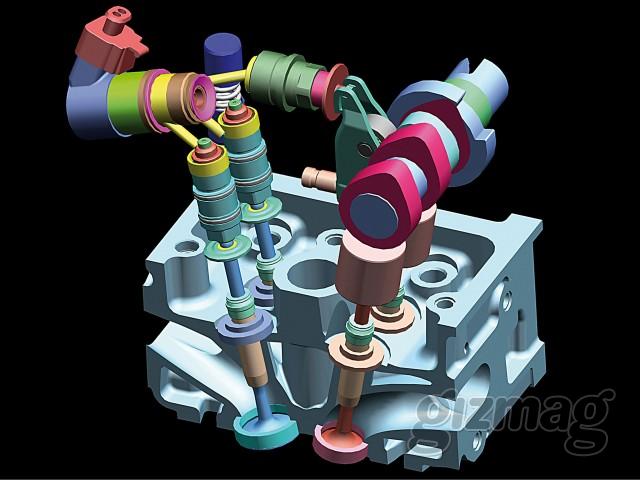
2008 Fiat 500
Chrysler's on the skids right now, no doubt about it. June sales plummeted 42 percent, and some consider its takeover by--errr, sorry, partnership with--Italy's Fiat to be the blind leading the lame.
But Fiat is far from the company it was 20 years ago, when it folded its tents and snuck out of the US, leaving handfuls of rusting, unreliable hatchbacks strewn across the landscape.
Today's Fiat brings at least two green innovations to Chrysler: the fantastic Fiat 500 minicar, in four variations, and MultiAir, a new engine technology said to boost fuel economy at least 10 percent.
Four models of Fiat 500
Fiat has now confirmed that Chrysler will build and sell the cute, clever Fiat 500 model in North America--in either the US or its factory in Toluca, Mexico.
As well as the standard hatchback, we'll get the 500C convertible with rolling cloth roof, a station wagon, and a sporting 500 Abarth from Fiat's racing partner of half a century. A four-wheel-drive sport-utility vehicle is also said to be in development, but there's no confirmation yet.
The great thing about the Fiat 500 is that it's not only adorable but wildly popular, and it's won rave reviews. It's so good, it even became Europe's Car of the Year for 2008.
Fiat CEO Sergio Marchionne calls the Fiat 500 "our iPod", which indicates how the company hopes Americans will perceive it: small, stylish, and full of user-friendly functionality--though hardly at bargain-basement prices.
Both gasoline and diesel models of the Fiat 500 return more than 40 miles per gallon in Europe, though US versions will have different emissions controls and more safety equipment.
In size, the Fiat 500 will compete with the Mini Cooper (of course), as well as the Scion iQ, a three-seat minicar that looks more like the Smart ForTwo.
Will it sell hundreds of thousands of units? Nope. But as a 'halo vehicle,' it will give Chrysler a dash of style and some awareness of fuel efficiency in a lineup sorely lacking in either.
Multi-Air
But Fiat also brings Chrysler an engine technology that has been talked about for decades but never successfully implemented. It's this kind of innovation that led Fiat to value its contributions to the partnership at $10 billion--meaning it put no actual cash into Chrysler.
The MultiAir engine replaces traditional camshafts and valves with electronically controlled hydraulic valves, meaning the opening of each valve can be varied individually.
Today's mechanically variable valve systems, from Honda and several other manufacturers, can only vary every valve by the same amount.
On overrun, for example, some valves in a MultiAir engine might not open at all, meaning no gasoline would be used on that cylinder's combustion cycle.
The same engine controller that adjusts each valve also regulates ignition timing, meaning a spark can be generated for the precise mixture in each cylinder--or not generated at all.
Customizing the airflow into each cylinder and the spark timing uses less fuel and cuts carbon emissions by 10 percent or more.
Pricier but smaller engines
The MultiAir technology is pricier than standard valvegear, roughly the same as a diesel engine. Diesels customarily cost 10 to 20 percent more to build than gasoline engines of the same capacity.
In Europe, the technology will likely appear on smaller four-cylinder engines, perhaps even two-cylinder motors.
In the US, MultiAir may allow fours to generate V6 power, and V6s to offer as much horsepower and torque as a V8--very similar to Ford's EcoBoost system, which uses gasoline direct injection and turbocharging to achieve the same goal.
With advanced engine technology and stylish, upmarket minicars, Fiat brings Chrysler strengths it's never had. The company could use them; its smallest current car, the 2009 Dodge Caliber hatchback, is far from competitive, and sales show it.
Meanwhile, we're wondering how a Hemi with hydraulic valves would go over with the Mopar crowd.

Fiat MultiAir

Fiat 500C

Fiat 500C













